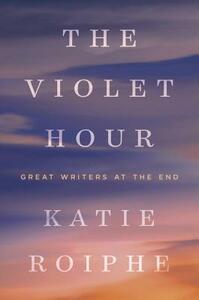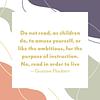You need to sign in or sign up before continuing.
Take a photo of a barcode or cover
I really loved Roiphe's perspectives on Sontag and Sendak particularly; I skipped over Freud entirely. I would have been interested to see her exploration of more women writers' experiences. The inclusion of photographs of the writers' workspaces made the whole much more poignant.
A well-researched book about how some well-known authors looked at their impending death. For most, Roiphe was able to interview intimates of the subjects or read diaries and letters that showed their thoughts on this subject. For some, we glean their thoughts and beliefs from their writings. Roiphe offers a prologue in which she explains how she looked at death as a child and how the subject has haunted her, which I found to be one of the more interesting pieces. I'm one of those people who want to know what you are experiencing as you are going through the process of dying. This was not that book; however, it was a fascinating peek into Susan Sontag, Sigmund Freud, John Updike, Dylan Thomas, and Maurice Sendak. In the end, we are all human.
I don't worry about death. I don't think about death. I don't care about death.
Nevertheless, this book is a brilliant book. Whether you care about death or not, whether you care about writers or not, this book will set your little mind a-spinning about life and, yes, death, and meaning and purpose, and love and hate, and all the important things. It's thoroughly researched, full of all the little details and stories that delight and reveal, and it's beautifully written, in solid little chunks, almost like poems.
Nevertheless, this book is a brilliant book. Whether you care about death or not, whether you care about writers or not, this book will set your little mind a-spinning about life and, yes, death, and meaning and purpose, and love and hate, and all the important things. It's thoroughly researched, full of all the little details and stories that delight and reveal, and it's beautifully written, in solid little chunks, almost like poems.
informative
inspiring
reflective
medium-paced
So well written and a fascinating view of artists toward the end of their lives.
I had never given much thought to how great writers die, other than knowing a few of their last words as fun facts. But thanks to Roiphe, we now have a few lovely vignettes on how a few writers fascinated with death spent their last days. From Susan Sontag to Sigmund Freud to Maurice Sendak, this book tackles the good, the bad, and the ugly of the greats' final moments. While Roiphe speaks sentimentally and with great attachment about these authors, as if she were eulogizing them to us at times, she *is* really attached because she herself almost died of pneumonia and wondered how the people whose works she was reading had faced down their respective mortal coils and the shuffling off thereof. I really enjoyed this book and while it did verge on a little too sentimental for my tastes, I'm so glad I know more about Maurice Sendak and the way he felt death called to him throughout his whole life, starting with his heart attack in his 30s.
I was initially interested in this because I presumed it was writers doing what they do best - writing. Only this time, they were writing about their own unbeatable illnesses, or the spectre of death that follows us all around. What I actually read was a book about these great writers and the end of their days. Nothing inherently wrong with that...except that, often, I found the writing long and drawn out - far past the point of where anything needed to be. It felt almost as if, during the writing, the author was hoping that the longer she wrote, the more death itself would make sense. Unfortunately, death often *doesn't* make sense to those around us, other than being the end that everyone will greet - some sooner than others.
Sadly, I was only able to get about halfway through before I simply could not read anymore. It's rare that I abandon a book (more from simple stubborn refusal), but - this one I did. I'm sure there will be some who might truly get something out of this, or value what they perceive as possible insights given - but as with beauty, it is in the eye of the beholder. And these eyes simply could not continue the long slog.
Sadly, I was only able to get about halfway through before I simply could not read anymore. It's rare that I abandon a book (more from simple stubborn refusal), but - this one I did. I'm sure there will be some who might truly get something out of this, or value what they perceive as possible insights given - but as with beauty, it is in the eye of the beholder. And these eyes simply could not continue the long slog.





